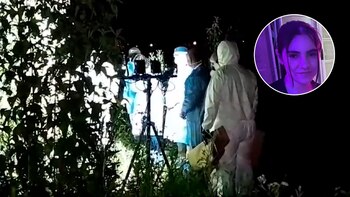
A Pakistani court convicted 88 people for the appalling murder of a Sri Lankan-born factory manager by a mob of workers who accused him of committing blasphemy.
Six of the defendants were sentenced to death, nine to life imprisonment and the remaining 72, including eight minors, received sentences ranging from two to five years in prison.
The events took place less than four months ago, when a mob in the Pakistani city of Sialkot mercilessly beat Priyantha Diyawadanage, lynched him and set fire to his body. Several perpetrators even took selfies with their burning corpse.
The victim was accused of blasphemy, a charge for which no one has ever been legally executed in Pakistan, although there are about 40 people sentenced to death in the country's prisons for this crime.
The issue is controversial and frightening, especially for the country's Muslim majority, as baseless accusations of blasphemy have resulted in murders perpetrated by civilians who take justice into their own hands.
According to Al Jazeera, at least 82 people have been killed in Pakistan since 1990 on accusations associated with blasphemy, including unproven rumors.

The last victim to thicken this statistic is Diyawadanage, a Sri Lankan citizen who had been living in Pakistan for 12 years. The man worked as a manager in a Rajco Industries factory, when he was mercilessly tortured to death by a crowd of hundreds of people last December 3.
Earlier that day, rumors that Diyawadanage committed blasphemy by breaking stickers bearing the sacred name of the Prophet Muhammad had spread throughout the factory, prompting a huge protest outside its doors.
Frightened and fearing for his life, Diyawadanage climbed to the roof of the factory seeking to escape the mob, but the rioters caught him and dragged him to the street, where they beat him to death.
A colleague who tried to rescue the victim from his attackers told local media that he did not blaspheme and that Muhammad's stickers had been temporarily removed as part of the factory cleanup.
The police had initially recorded cases against 800 to 900 people for their involvement in the attack and arrested 131.
“The prosecution team worked very hard to present their case to the court and reach this sentence,” Abdul Rauf Wattoo, the prosecutor, told AFP. “We are satisfied with the result.”
But in Pakistan the sentence was met with suspicion, with activists against blasphemy laws claiming that such sanctions did not address the problem at its root.
According to Saif-ul-Malook, an expert blasphemy lawyer and human rights defender, these court rulings are an inappropriate attempt to deliver justice.

In conversation with Vice News, he explained that the judges' approach is to punish only those who participated directly in the lynching, but to acquit those who witnessed it and those who allowed it to happen, “such as the factory owners, the police and the Sialkot district administration.”
He also noted that accusations and charges of blasphemy are often used as a weapon against religious minorities and to resolve personal vengeance.
In March, a teacher was killed outside a religious seminary by other teachers from a rival seminary in the area. According to the police, the assailants had been convinced to kill the woman based on a child's dream.
The Sialkot incident has provoked a major protest in both Sri Lanka and Pakistan, where vigils were held after the attack. Former Pakistani Prime Minister Imran Khan called the case “a day of shame” for the country.
Although the verdict has been well received by many, some are too tired to celebrate it.
“In my opinion, this is all eyewash by the Pakistani government to save face in front of the international community,” Malook said.
“I think the sentences will be overturned in the Supreme Court. People will forget this, there will be new incidents and people will run after them. This is not a serious effort to eliminate such incidents in the future,” the expert added.
KEEP READING
Últimas Noticias
Debanhi Escobar: they secured the motel where she was found lifeless in a cistern

The oldest person in the world died at the age of 119

Macabre find in CDMX: they left a body bagged and tied in a taxi
The eagles of America will face Manchester City in a duel of legends. Here are the details

Why is it good to bring dogs out to know the world when they are puppies



